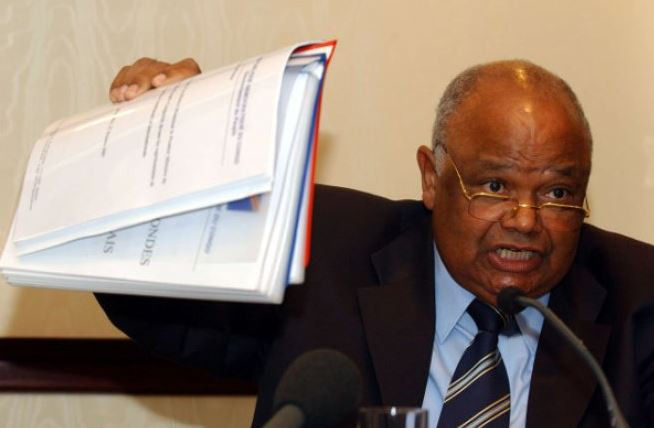'No peaceful solution' to DRC crisis warns leader of opposition coalition Le Rassemblement
Raphael Katebe Katoto tells IBTimes UK as situation deteriorates due to 'the population taking charge'.
The Democratic Republic of Congo (DRC)'s main opposition coalition, Le Rassemblement, knows it will not reach a peaceful solution when it sits at the negotiating table with President Joseph Kabila, whose legitimacy as the head of state it rejected today.
The resource-rich African nation is on a political knife-edge after Kabila's refusal to step down despite the expiration of his last constitutional term in office. In a video clip, recorded hours before the new government was announced, Le Rassemblement's leader and political heavyweight Etienne Tshisekedi slammed Kabila's "coup d'état" and called for the population to reject Kabila's "illegitimacy".
Amid fears the country was teetering on the brink of full-blown conflict, things accelerated last night when Prime Minister, Sami Badibanga, announced a new government in an apparent effort at appeasing opposition criticism – moments before Kabila's term ended.
At the time, Tshisekedi told Katebe Katoto he was willing to return to the national dialogue hosted by the DRC's powerful Catholic church (CENCO), "to see how we could give ourselves the chance to reach a peaceful and lasting solution."
But the interim administration was announced while the talks led by the CENCO, to whom Kabila gave the mandate to help mediate a political accord with the opposition, were suspended as the Catholic mission visited the Vatican.
"They are coming tomorrow to resume the negotiations, but Kabila has already presented his government. What purpose do the negotiations serve then?" Katebe Katoto, said. "That was a serious matter. It was a challenge to the international community, to the region, to the Congolese," a leader of the Le Rassemblement, Raphael Katebe Katoto, exclusively told IBTimes UK.
'The population is taking charge. The Congolese have started moving'
Katebe Katoto, whose brother and prominent opposition leader Moise Katumbi faces a warrant for his arrest in the DRC, highlighted the Rassemblement's earlier readiness to sit at the negotiation table to reach a peaceful agreement. "That was to show the international community our good will, that we do not want violence to explode and people to be killed," he said.

"But now that Kabila has presented his government, that changes everything. We still have a lot of talking to do within the Rassemblement, but the situation is starting to deteriorate," he said. "That is why we [Rassemblement] have called for the civil disobedience of the population, because the regime has lost its legitimacy. It's over," he added, highlighting protests growing in the streets of Kinshasa and Lubumbashi. "The population is taking charge. The Congolese have started moving."
IBTimes UK was not able to independently confirm reports that up to 38 people have been killed in clashes between civilians and security forces across Congo's largest cities, as alleged by Le Rassemblement.
Human Rights Watch (HRW) has confirmed that security forces killed at least three people on Tuesday morning in the capital, Kinshasa, and scores more have been arrested since Monday morning. The United Nations, meanwhile, confirmed it was reviewing "pretty solid" reports of up to 20 civilians killed in clashes in Kinshasa.
"Come this evening, we will know what measures to take. At the end of the day, we know there will not be a solution when we get to the negotiating table because our position is clear – Kabila must go."
The a broad coalition of opposition groups had consistently boycotted calls by President Kabila for a "national dialogue" that concluded in a political agreement on 18 October, which the grouping rejected. The Rassemblement agreed to meet with the presidential majority (MP) for the first time on 8 December.
© Copyright IBTimes 2025. All rights reserved.






















